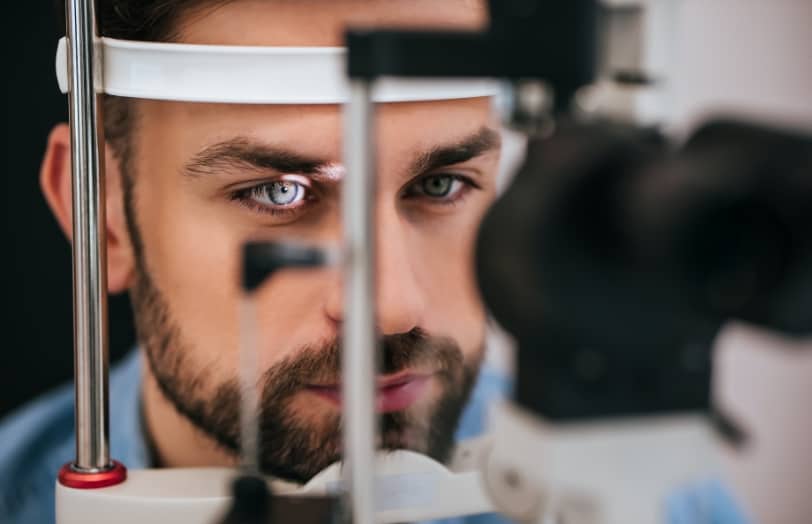
Frequently asked questions
What are the alternatives?
If you choose not to have this surgery, the eyelid position and symptoms are unlikely to improve spontaneously. In some cases there is a possibility of damage to the cornea from exposure or from eyelashes that may result in sight-threatening corneal infections or scarring.
What are the benefits of surgery?
- correction of abnormal position of eyelid
- improved cosmetic appearance
improved symptoms of excessive tearing, crusting of the eyelid, discharge and eye discomfort - reduced chances of sight-threatening corneal infection
What is Entropion?
Entropion is a medical condition in which the eyelid (usually the lower lid) folds inward. It is usually uncomfortable, as the eyelashes continuously rub against the cornea causing irritation.
What are the benefits of surgery?
- correction of abnormal position of eyelid
- improved cosmetic appearance
improved symptoms of excessive tearing, crusting of the eyelid, discharge and eye discomfort - reduced chances of sight-threatening corneal infection
What is Ectropion?
Ectropion is where the lower eyelid droops away from the eye and turns outwards. It’s not usually serious, but can be uncomfortable. Entropion is a medical condition in which the eyelid (usually the lower lid) folds inward. It is very uncomfortable, as the eyelashes continuously rub against the cornea causing irritation.
What are the alternatives?
Surgery is generally the best treatment for Ptosis. If, however, you choose not to proceed with surgery, the droopy eyelids will persist and may worsen with time but will not have any permanent detrimental effect on your vision or general health. Ptosis props are devices attached to spectacles that can hold the eyelids up but many people find them uncomfortable or ineffective.
What are the benefits?
- Correction of ptosis (droopy eyelid)
- Improvement of symmetry of eyelid height and contour
- Improvement to visual fields (peripheral and above)
- Where excess skin is also present, skin removal (blepharoplasty) may also be performed.
What are the risks?
- bleeding
- infection
- scarring
- over-correction
- under-correction (persistent droopy eyelid)
- asymmetry of height and contour of eyelid margin or of skin fold
- dry eye, requiring the use of artificial tear drops
- temporarily blurred vision
- weak or limited eyelid closure (especially at night)
- failure or recurrence
- possible need for another ptosis repair in the future
- cysts or whiteheads along suture sites
- temporary patches of numbness of the eyelids
- orbital haemorrhage with a potential for permanent visual loss.
In addition to the risks specific to the individual procedure, there are also general risks, such as blood loss, infection, cardiac arrest, airway problems and blood clots, which are associated with any surgical procedure. Local anaesthetic may cause bruising or possible allergic responses. If your operation is to be carried out under general anaesthetic, the anaesthetist will discuss this with you.
How do people develop Ptosis?
People can be born with ptosis, although more commonly it develops in later life. This can be due to either a familial trait, contact lens use or rarely more concerning causes. It is not to be confused with dermatochalasis (eye bags) which is an excess of upper eyelid skin, which is corrected by a blepharoplasty.
What should I expect after surgery?
- After surgery you may experience some pain. Simple paracetamol is usually enough to control this.
- The eyelids will be a bruised and swollen. Bruising will take approximately 2 weeks to settle. Swelling is greatly reduced after 2 weeks but may not completely resolve for several months.
- Some people report not feeling ‘back to normal’ for up to 6 months after surgery.
- Initially it may feel difficult for you to close your eyelids and this will be managed with eye ointments.
- It is important not to have surgery too close to important events, in case you have not fully recovered in time.
















